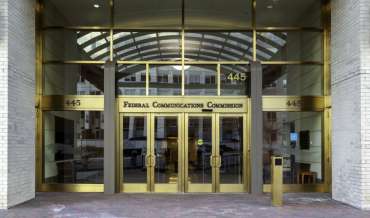Florida Governor Ron DeSantis signed amendments to the Florida Telephone Solicitation Act (FTSA) on May 26. As we have covered previously, these amendments greatly reduce the risks of the FTSA for callers. But the amendments do not create a free-for-all for marketers. There are still rules to follow and there are still risks to heed.
What Is an ATDS Under the FTSA?
The most significant change to the FTSA in terms of impact may be the smallest one in terms of the text. The amendments change the minimal autodialer definition from an “automated system for the selection or dialing of numbers” to one that requires both “selection and dialing”. This reduces the applicability of the FTSA’s significant autodialer restrictions.
Under the previous terminology, most dialing systems were determined to fit the autodialer definition and a plethora of lawsuits and class actions followed, particularly for text message campaigns. The new definition narrows the range of what sorts of dialers qualify for these restrictions. For example, human selection dialers were autodialers under the old definition but likely will not be under the new one.
However, this narrower definition still leaves room for plenty of dialers to qualify for the FTSA’s autodialer restrictions. For example, predictive dialers are likely still autodialers under the new definition. Even after these amendments, the FTSA’s autodialer rules are still more widely applicable in Florida than the Telephone Consumer Protection Act’s (TCPA) post-Facebook autodialer rules are at a federal level.
Other Changes Offer Relief But Dangers Remain
The amendments include a number of other changes that benefit callers. This includes a 15-day notice-and-cure period which, combined with the new autodialer definition, should severely reduce the amount of text-message lawsuits and class actions. Additionally, new language about “unsolicited calls” should open up more avenues for established business relationship (EBR) and inquiry defenses.
Many provisions of the FTSA remain unchanged, however. This included restrictions on prerecorded voice calls, calling time restrictions, daily calling limits, and do not call (DNC) list restrictions. And while the autodialer rules have been changed, they do still exist and can still apply to certain dialing behaviors.
Most importantly, the basic structure of enforceability remains in place. The TCPA-like per-violation penalties, private right of action, and uncapped statutory damages still serve as incentives for plaintiffs in one of the most litigious states in the country. The volume of FTSA complaints should be reduced and the nature of those complaints is bound to change, but litigators and plaintiffs will still use the law to take advantage of callers who do not maintain high standards of compliance.
Set Yourself Apart From the Competition With Best Practices
It seems inevitable that some callers will take these amendments as an excuse to loosen their calling practices and either violate the rules that remain in place or simply annoy consumers. You can stand out from these callers by maintaining solid compliance practices—keeping good consent standards, honoring opt-outs, scrubbing calling lists against the DNC list, etc.
You may also find a way to differentiate yourself from the callers taking advantage of these lowered restrictions by branding your calls. If Florida residents are likely to receive more calls from marketers as a result of the FTSA amendments, they will almost certainly be more likely to answer the ones that come from trusted, recognizable, and branded numbers.
The FTSA amendments create new opportunities for callers to the sunshine state but only those who engage in these sorts of best practices will take full advantage.





